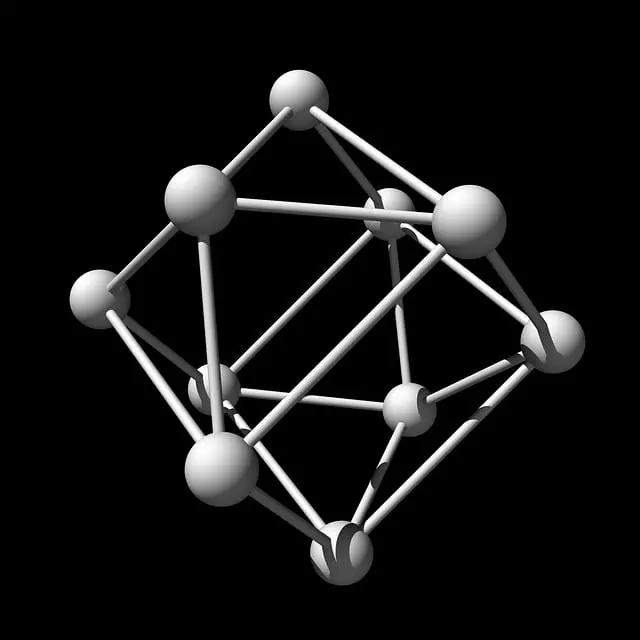Muscle soreness after exercise is caused by microtears in muscle fibers and can be exacerbated by dehydration, poor warm-ups, and overtraining. Kratom, a natural herb from Mitragyna speciosa leaves, has shown potential in reducing muscle soreness due to its interaction with opioid receptors and effects on prolactin levels, offering an alternative to opioids with lower addiction risk. Combining kratom with stretching, foam rolling, hydration, and targeted muscle work can enhance recovery. More clinical trials are needed to fully understand kratom's role in managing muscle soreness and prolactin levels.
“Experience lasting muscle soreness relief with the help of nature’s powerful ally, kratom. This natural supplement has gained attention for its potential benefits in mitigating post-workout aches and pains. In this article, we delve into the science behind muscle soreness, exploring its causes and the role of kratom prolactin in offering a soothing solution. Learn how this ancient herb can be strategically integrated into your recovery routine, providing fast-acting relief without the traditional side effects. Discover effective strategies to enhance your wellness journey with kratom.”
- Understanding Muscle Soreness and Its Causes
- Exploring Kratom Supplements as a Potential Relief Option
- Effective Strategies for Integrating Kratom into Your Recovery Routine
Understanding Muscle Soreness and Its Causes
Muscle soreness is a common issue that can arise from various activities, such as intense workouts or physical labor. It’s characterized by a painful and stiff feeling in the affected muscles, often accompanied by reduced mobility. Understanding the causes of this discomfort is essential when exploring effective relief strategies.
One key factor contributing to muscle soreness is microtears in muscle fibers during exercise. These tiny tears lead to inflammation, causing pain and stiffness. Additionally, factors like dehydration, inadequate warm-up routines, or overtraining can exacerbate muscle soreness. Interestingly, kratom, a natural herb with various compounds, has been studied for its potential effects on prolactin levels, which may indirectly influence muscle recovery. Prolactin, often referred to as the “milk hormone,” plays a role in muscle growth and repair. Some research suggests that kratom’s ability to interact with opioid receptors could provide analgesic benefits, potentially offering relief from muscle soreness.
Exploring Kratom Supplements as a Potential Relief Option
Kratom, derived from the leaves of the Mitragyna speciosa plant, has gained attention for its potential therapeutic benefits, including muscle soreness relief. This natural supplement is known to interact with opioid receptors in the brain and body, offering pain-relieving effects similar to opioids but with a lower risk of addiction. Recent studies suggest that kratom may help reduce muscle discomfort by decreasing inflammation and blocking certain neurotransmitters involved in pain perception.
The use of kratom for prolactin management is an emerging area of interest. Prolactin is a hormone associated with various bodily functions, including immune response and lactation. Some research indicates that kratom’s unique chemical composition could help regulate prolactin levels, potentially contributing to overall well-being and reducing muscle soreness related to hormonal imbalances. However, more clinical trials are needed to fully understand its efficacy in this context.
Effective Strategies for Integrating Kratom into Your Recovery Routine
Kratom, a natural herb known for its diverse therapeutic properties, has emerged as a popular supplement for muscle soreness relief. When integrated into your recovery routine, kratom can be an effective strategy to enhance post-workout recovery. The herb’s unique chemical composition, including compounds like mitragynine and 7-hydroxymitragynine, interacts with opioid receptors in the body, potentially reducing inflammation and muscle pain.
To maximize the benefits of kratom for muscle soreness, consider timing your doses strategically. Taking kratom before or after a rigorous workout can help alleviate discomfort and speed up recovery. Additionally, combining kratom with other complementary practices like stretching, foam rolling, and adequate hydration creates a holistic approach to post-workout recovery, ensuring optimal results. Targeting specific muscle groups through focused exercises and utilizing kratom’s natural anti-inflammatory properties can lead to improved flexibility and reduced soreness over time.
Kratom supplements have shown promise in alleviating muscle soreness, offering an alternative relief option for active individuals and athletes. By understanding the science behind kratom’s effects on prolactin levels, we can harness its potential to enhance recovery routines. Integrating kratom into your post-workout regimen, combined with other effective strategies like stretching and proper nutrition, may significantly improve overall muscular well-being.






